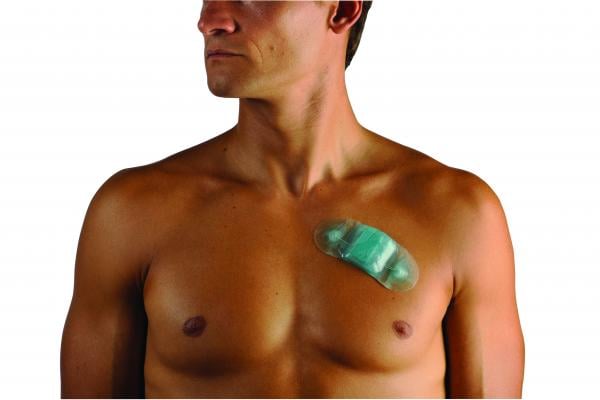January 8, 2014 — iRhythm Technologies announced that a prospective
study by Scripps Translational Science Institute (STSI) has found that use of the company's Zio Service significantly increased detection of cardiac arrhythmias, compared to use of the traditional
Holter monitor. The findings were published and made publicly accessible online in the January issue of the American Journal of Medicine.
"This is the first large prospective validation that this new technology superseded the device invented by Norman Holter in 1949," said study senior author Eric Topol, M.D., cardiologist, director, STSI, and chief academic officer, Scripps Health. "By tracking every heart beat for up to two weeks, the Zio Service proved to be significantly more sensitive than the standard Holter, which uses multiple wires and typically is only used or tolerated for 24 hours.”
"For millions of people who present each year with suspected arrhythmia, this may prove to be the new standard for capturing the culprit heart rhythm
electrical disturbance, most commonly atrial fibrillation which carries a significant risk of stroke," Topol continued.
The prospective study included 146 consecutive Scripps Health patients who were referred for evaluation of cardiac arrhythmias and underwent simultaneous ambulatory
electrocardiogram (ECG) monitoring with a Zio Patch, which is worn on the chest and continuously records heartbeats for up to 14 days, and a conventional 24-hour Holter monitor, a portable machine with multiple wires that connect to electrodes on the chest. Over the total wear time of both devices, the Zio Service detected 57 percent more arrhythmia events compared to the Holter monitor (96 versus 61), primarily due to prolonged monitoring. Physicians also reported that they arrived at a definitive diagnosis in 90 percent of cases using the Zio Service, compared to 64 percent with the Holter monitor. Further, 81 percent of patients reported they preferred the Zio Patch versus the Holter monitor.
"Traditional cardiac monitoring options are limited in their ability to capture arrhythmias, which are infrequent and often have no symptoms, and because they are hard for patients to comply with," said Kevin King, president and CEO, iRhythm.
For more information: www.irhythmtech.com, www.amjmed.com


